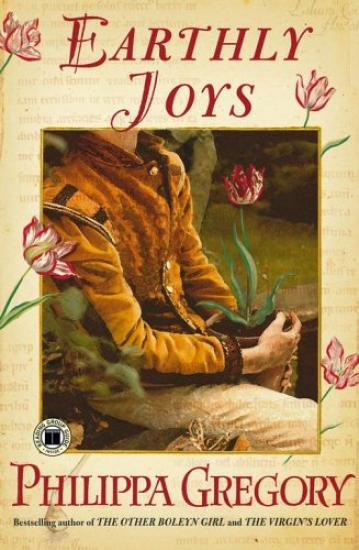
Series: Book 1 in the Earthly Joys series
Rating: ****
Tags: Fiction, Historical fiction, Britain, Lang:en
Summary
Seventeenth-century England is the setting for this engaging
historical novel based on the life of John Tradescant, a
gardener of common birth who transforms plain plots of land
into slices of heaven on earth. As vassal to the secretary of
state, Sir Robert Cecil, Tradescant—who, as fate would
have it, had no sense of smell—places his master's garden
above all else, much to the chagrin of his wife, Elizabeth, and
young son, J. Tradescant's affinity for botanicals is matched
by his thirst for adventure; in the service of his lord, he
travels to distant lands to defend his country's honor (and
collect cuttings of rare and exotic plants). When Tradescant is
summoned by King James I's closest confidante, the dark-haired
and devious Duke of Buckingham, he is immediately taken by the
nobleman's beauty. Devotion soon turns to erotic obsession, and
Tradescant must face the consequences of loving a fickle,
heartless man. Gregory (_The Virgin's Lover_;
The Other Boleyn Girl) renders lush details of plants
and clever commentary on the passions and power plays of the
British royal court. Only the occasional detail-heavy battle
scene slows this vibrant tale of a man grappling with the
liabilities of loyalty and love.
John Tradescant, gardener to Lord Cecil, depends on a
well-ordered universe in which he serves a master, who serves
the crown, who serves God. When James I succeeds Elizabeth, the
social fabric begins to unravel. The disastrous rule of Charles
I stirs more discontent among the people, including John's wife
and son. As he searches for new plants and creates fabulous
gardens for wealthy patrons, John witnesses court dissipation
and corruption. His loyalty to Lord Buckingham, a man
unsurpassed in beauty, ambition, and self-indulgence, changes
John from servant to lover, bringing him guilt as well as
pleasure before Buckingham's rejection. Gregory's (The Little
House, LJ 10/1/96) strong plotting, intriguing characters, and
rich evocation of a time and place will leave readers eager for
the promised sequel about John's son. Highly recommended for
historical fiction collections.?Kathy Piehl, Mankato State
Univ., MN
From Publishers Weekly
Copyright © Reed Business Information, a division of Reed
Elsevier Inc. All rights reserved.From Library Journal
Copyright 1998 Reed Business Information, Inc.